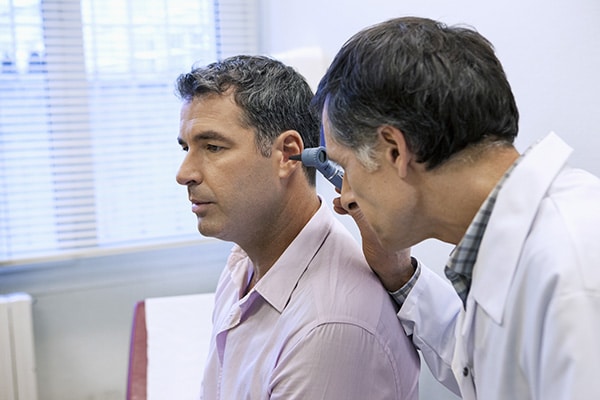
Hearing loss has a big impact on the quality of a person’s life. It makes simple tasks like watching TV or socializing with friends incredibly difficult. Society often downplays the seriousness of hearing loss, but people that live with it every day know that it can make life very difficult. That’s why they will often ask if there is a way to reverse their hearing loss.
In some cases, hearing loss is permanent and there is no way to reverse it, especially where sensorineural hearing loss is concerned. This is the most common form of hearing loss, which occurs when small hair-like cells in the inner ear are damaged or the auditory nerve which sends signals to the brain is damaged. This is usually caused by aging, but some children are also born with sensorineural hearing loss.
Where other types of hearing loss are concerned, there are more options available. Conductive hearing loss occurs when there is an obstruction or damage to the ear canal that stops sound from reaching the inner ear. Some people also experience mixed hearing loss, which is caused by a combination of sensorineural and conductive hearing loss. In these cases, partial hearing loss may be possible.
If you experience hearing loss, speak with your audiologist and they will be able to give you more information about the following treatments that could potentially reverse hearing loss.
Hearing Aid Technology
Hearing aids are also an incredibly common treatment for hearing loss that cannot be reversed. They come in a variety of styles and sizes, ranging from those worn behind the ear to those worn inside the canal. These devices are programmed and tailored to your specific hearing loss needs, allowing for the most natural listening experience possible. They can also be equipped with a host of different features, including Bluetooth and directional microphones.
Cochlear Implants
Cochlear implants are a surgical treatment that can restore hearing in people that have little or no hearing ability at all. It is used on adults, but it is more common in children. The surgery works by using an implant to bypass the cochlear and send electrical impulses directly to the hearing nerves. These electrical impulses will then be translated by the brain into meaningful sound, thereby reversing the hearing loss.
If you experience hearing loss and you see an audiologist, they will rarely offer you a cochlear implant right away. Instead, they will fit you with hearing aids first. If your hearing does not improve with the use of hearing aids, then you will be considered for cochlear implant surgery.
Bone-Anchored Hearing Systems
Bone-anchored hearing systems are most commonly used in people that have hearing loss in one ear or people that have malformed ear canals that make it difficult for sound to reach the inner ear. The surgery involves the implant of a small metal device into the mastoid bone behind the ear. Following the surgery, an audiologist will fit a device similar to a hearing aid over the implant. This device converts sounds to vibrations, which then pass through the implant in your mastoid bone to stimulate sound waves in the inner ear.
Stapedectomy
Conductive hearing loss can be caused by a lack of mobility in the small bones in the inner ear, which makes them ineffective at transmitting sounds. Otosclerosis, the forming of extra bone around the base of the innermost bone in the middle ear. If your audiologist diagnoses you with otosclerosis, you may undergo a stapedectomy. The bones will be removed and replaced with a small prosthesis so your hearing loss is reversed and the problem does not recur in the future.
Middle Ear Tubes
The insertion of middle ear tubes is a minor outpatient procedure that is usually used in cases where the patient has an ear infection. An infection causes a buildup of pressure behind the eardrum or fluid that needs to be drained. The middle ear tubes, sometimes referred to as pressure equalization tubes, can be inserted to relieve the buildup of pressure or fluid and deal with temporary hearing loss.
This procedure is most common in children because they are more prone to ear infections as they develop. If hearing loss is sensorineural, this treatment will have no impact at all.
If you have sensorineural hearing loss, you will not be able to reverse it. Instead, you will be reliant on hearing aids to improve your hearing loss. But if your hearing loss is conductive, you should speak with your audiologist about potential surgeries that could reverse your hearing loss.
If you’d like to learn more information, then don’t hesitate to contact us at Kampsen Hearing right away. You can call (813) 369-5692 to speak with one of our team members.